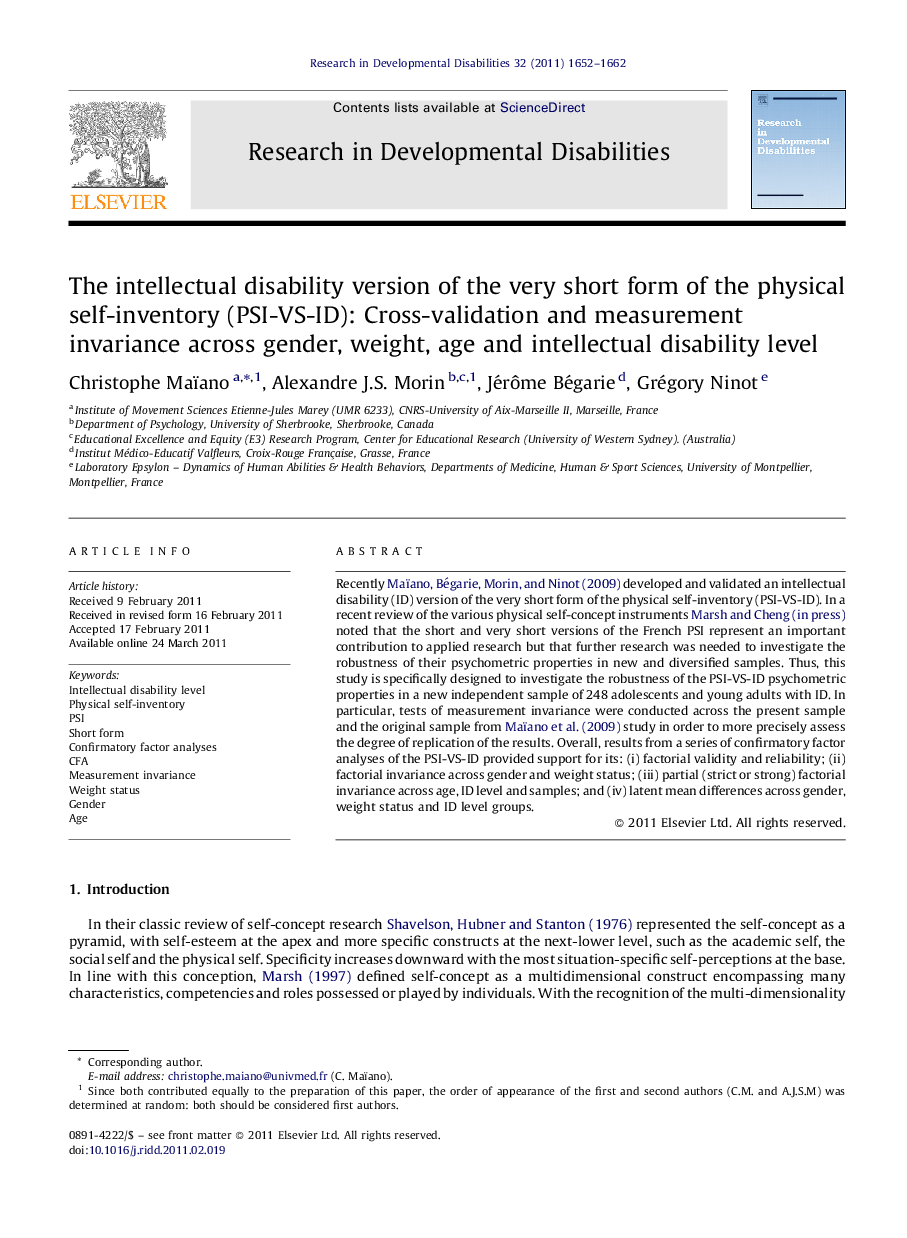| Article ID | Journal | Published Year | Pages | File Type |
|---|---|---|---|---|
| 371696 | Research in Developmental Disabilities | 2011 | 11 Pages |
Recently Maïano, Bégarie, Morin, and Ninot (2009) developed and validated an intellectual disability (ID) version of the very short form of the physical self-inventory (PSI-VS-ID). In a recent review of the various physical self-concept instruments Marsh and Cheng (in press) noted that the short and very short versions of the French PSI represent an important contribution to applied research but that further research was needed to investigate the robustness of their psychometric properties in new and diversified samples. Thus, this study is specifically designed to investigate the robustness of the PSI-VS-ID psychometric properties in a new independent sample of 248 adolescents and young adults with ID. In particular, tests of measurement invariance were conducted across the present sample and the original sample from Maïano et al. (2009) study in order to more precisely assess the degree of replication of the results. Overall, results from a series of confirmatory factor analyses of the PSI-VS-ID provided support for its: (i) factorial validity and reliability; (ii) factorial invariance across gender and weight status; (iii) partial (strict or strong) factorial invariance across age, ID level and samples; and (iv) latent mean differences across gender, weight status and ID level groups.
► Recently Maïano, Bégarie, Morin, and Ninot (2009) developed and validated an intellectual disability (ID) version of the very short form of the physical self-inventory (PSI-VS-ID). ► In a recent review of physical self-concept instruments Marsh and Cheng (in press) noted that the PSI represented an important contribution to applied research but that further research was needed to investigate its robustness in new and diversified samples. ► The present study investigates the robustness of the PSI-VS-ID psychometric properties in a new sample of 248 adolescents and young adults with ID. ► Confirmatory factor analyses replicated the a priori factor model and confirmed its measurement invariance across the present sample and the original sample from Maïano et al. (2009) study. ► Additional results provided support for the PSI-VS-ID measurement invariance across gender and weight status; partial measurement invariance across age and ID level. ► Latent mean differences were also identified across gender, weight status and ID level and were consistent with what is generally observed in studies of youths with ID.
